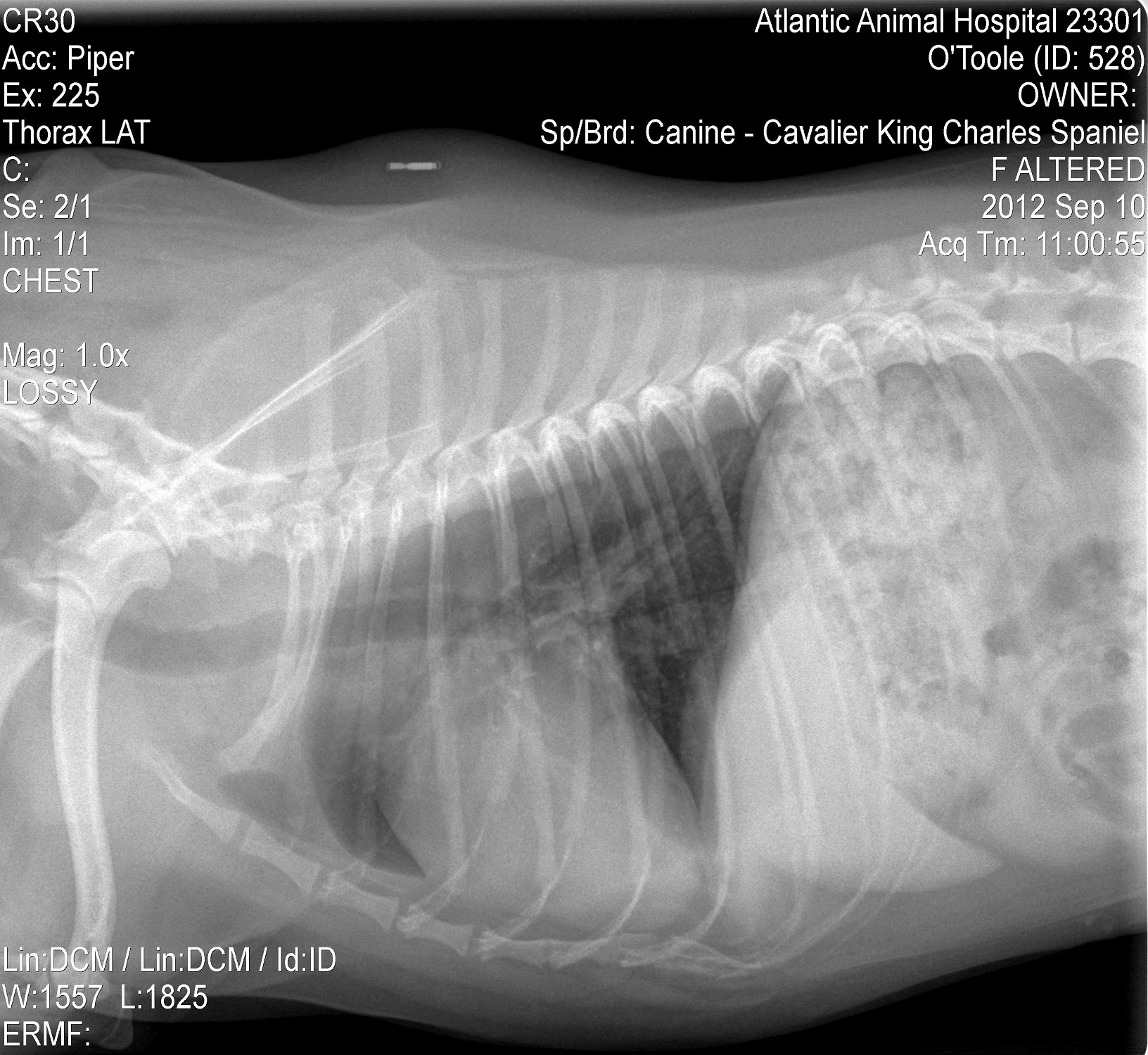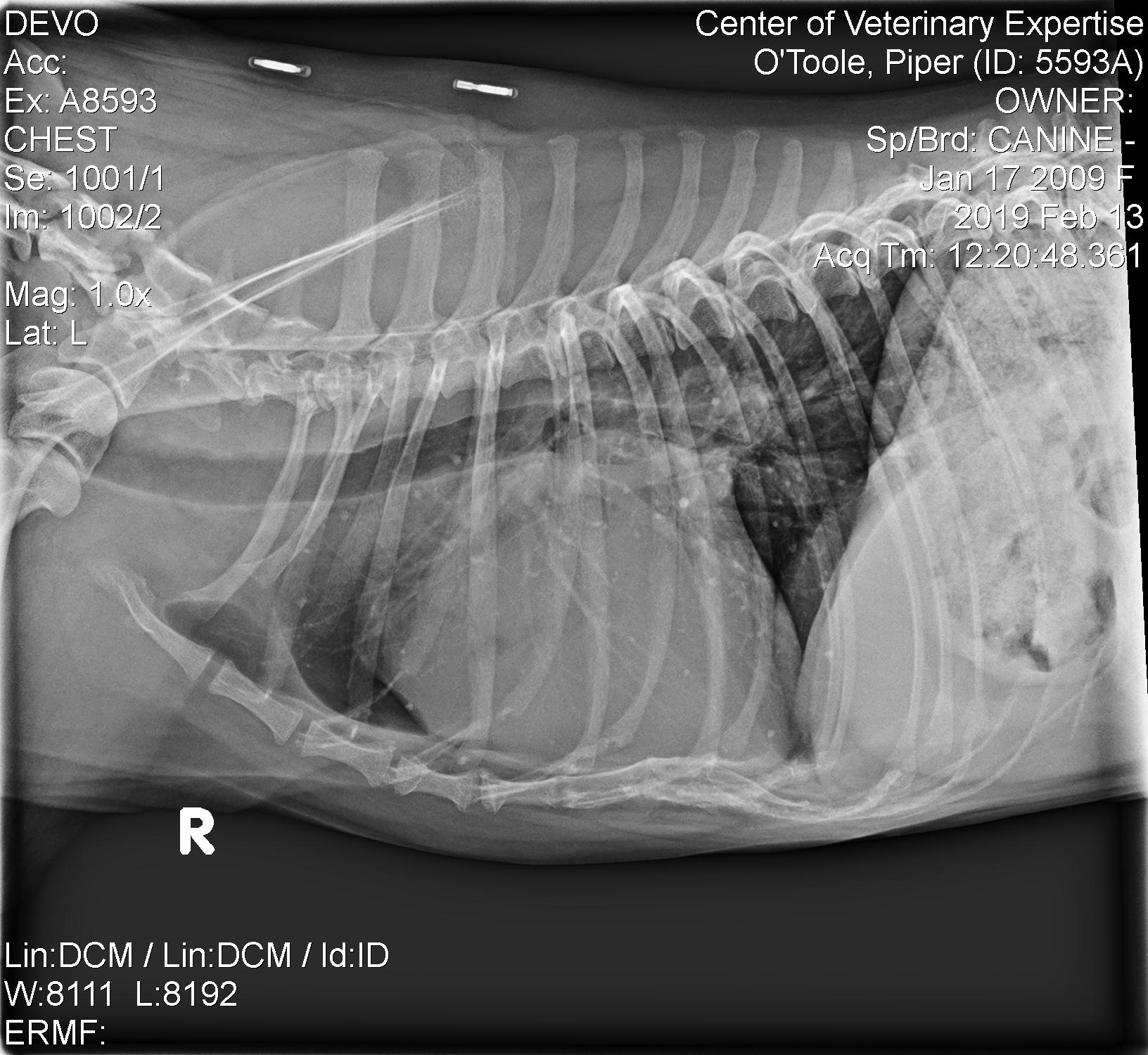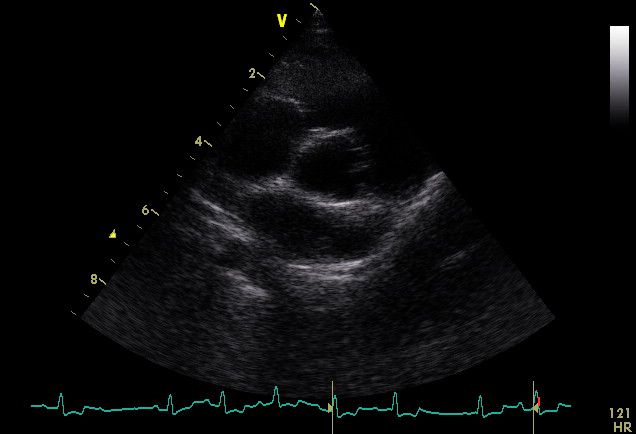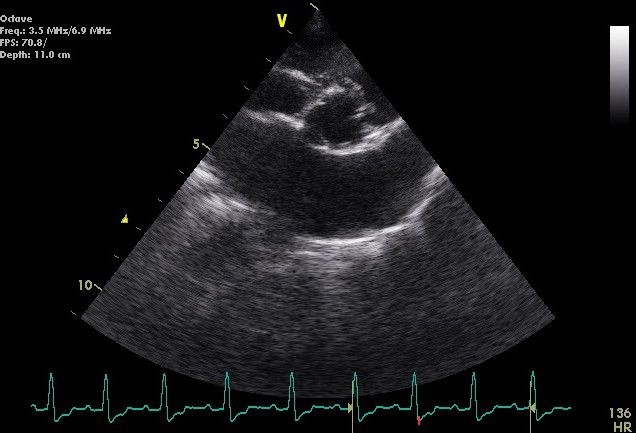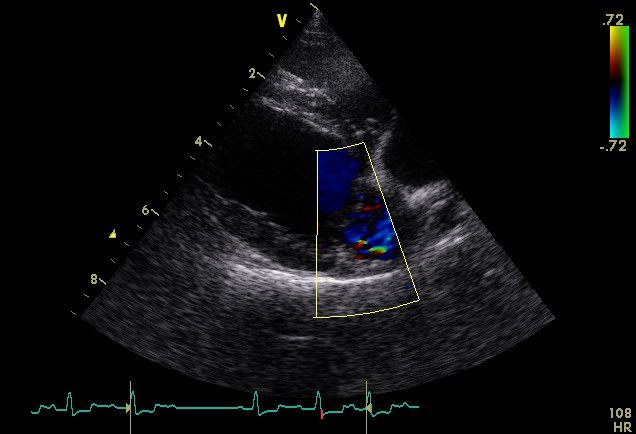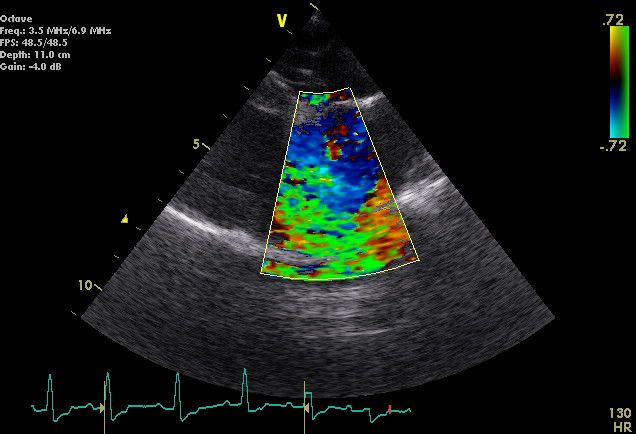By Merrilee Small, DVM, DACVIM (Cardiology) & Marie Moore, LVT
February is American Heart Health Month and this includes your furry family members as well!
Did you know that approximately 20% of small-breed dogs are diagnosed with a heart murmur by the age of 10? A heart murmur is often the result of the most common cardiac disease in small-breed dogs, early mitral valve endocardiosis. This disease progresses with the degeneration of the mitral valve, leading to valve insufficiency (a leak) and cardiac enlargement. In advanced stages, this can lead to congestive heart failure (characterized by fluid accumulation in the lungs or abdomen) and poor blood flow to vital organs. Congestive heart failure symptoms include labored breathing, distended abdomen, cough, passing out, reduced appetite, and weight loss. Typically mitral valve disease progresses for several years before patients develop symptoms. The key to optimizing quality of life is early detection and routine follow-up.
A study published in the Journal of Veterinary Internal Medicine (August 2016) has helped us extend quality time for patients from the development of a murmur to the onset of symptoms. The trial, called EPIC, was so successful, the study was discontinued early! The time from murmur to symptoms was extended 15 months by administering a drug called pimobendan prior to the first episode of heart failure in patients with heart enlargement. Patients must meet certain qualifications to receive pimobendan: The first is enlargement of the heart, diagnosed by radiographs (x-rays). Additionally, the results of an echocardiogram (ultrasound of the heart) will further determine the patient’s suitability for the treatment. A board-certified veterinary cardiologist should perform the echocardiogram.
Piper
Piper is a 10-year-old female spayed Cavalier King Charles Spaniel. She was diagnosed with a congenital heart defect at 1 year of age and was routinely monitored with echocardiography. Piper was diagnosed with mitral and tricuspid valve endocardiosis at 5 years old. Monitoring was continued and her heart slowly enlarged. Piper met EPIC requirements when she was 9 years old, and pimobendan treatment was instituted. All cardiac medications have the potential to alter blood flow to the kidneys. Therefore, pre- and post-treatment blood work is required to monitor kidney function with pimobendan. At-home monitoring was also recommended, including monitoring resting respiratory rates.
Today, Piper remains symptom-free for heart disease and is doing well on her treatment. She will continue to have routine follow-ups every six months.
If you would like more information about Cardiology services at The COVE, please call us anytime at (757) 935-9111 and Happy Heart Health Month!

Fig. 1. Piper at her first recheck after institution of pimobendan.
- Cove Piper Fig. 2
- Cove Piper Fig. 3
- Cove Piper Fig. 4
- Cove Piper Fig. 5
- Cove Piper Fig. 6
- Cove Piper Fig. 7
References:
- Rishniw, M. (2017). Effect of Pimobendan in Dogs with Preclinical Myxomatous Mitral Valve Disease and Cardiomegaly: The EPIC Study – A Randomized Clinical Trial. Advances in Small Animal Medicine and Surgery, 30(4), 1-3. doi:10.1016/j.asams.2017.03.008
- Serfass, P., Chetboul, V., Sampedrano, C. C., Nicolle, A., Benalloul, T., Laforge, H., . . . Tissier, R. (2006). Retrospective study of 942 small-sized dogs: Prevalence of left apical systolic heart murmur and left-sided heart failure, critical effects of breed and sex. Journal of Veterinary Cardiology, 8(1), 11-18. doi:10.1016/j.jvc.2005.10.001
About Us
The COVE’s veterinarians and staff wholeheartedly embrace the core values of community, collaboration, commitment, compassion, and integrity. This focus ensures that pets, the people who love them, and their primary care veterinarians have as positive and affirming a healthcare experience as possible, regardless of the circumstances that bring us all together.

